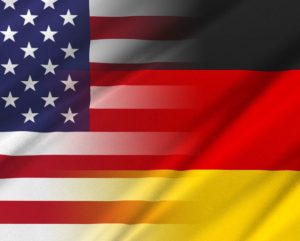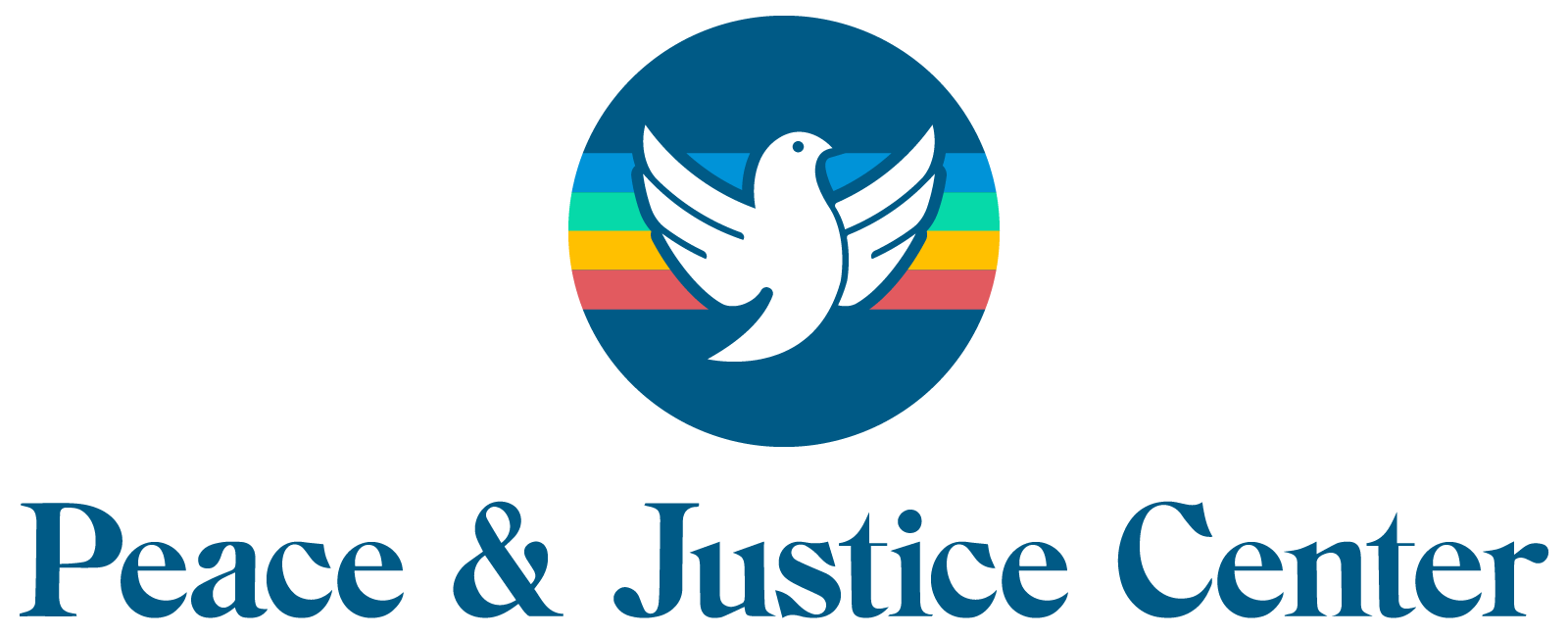–Kristen Connors, former PJC staff member

Recently, I participated in the Peace & Justice Center’s Toxic Whiteness discussion group for the first time in the two years since I moved from Vermont to Cleveland, Ohio. Members of my extended family had also recently reached out to me about anti-racism resources, and also about my experience participating in the PJC Toxic Whiteness discussion. Today, I want to share my experience of having a Toxic Whiteness discussion with my extended family.
Shortly after Ahmaud Arbery, Breonna Taylor, and George Floyd were murdered in quick succession by the police, and massive amounts of people took to the streets to demand justice, and an end to white people’s 400 years of brutal oppression of black folx, I created a Facebook group for my extended family, on my mother’s side, where we could share anti-racist resources and engage in anti-racist work within familial support and accountability system. One of my mother’s cousins got a Zoom account, and we scheduled our first family Toxic Whiteness discussion. I posted a link to the article, Healing Your Thousand Year Old Trauma by Mensaa Menakem, in our family Facebook page before our family Toxic Whiteness discussion so we could talk about this article in the context of our own family.[1] I have to acknowledge that I feel extremely lucky that my (biological) family is very close, very kind, very generous, and very supportive. I recognize that not everyone feels the same way about their own biological families, and may not feel like they cannot engage with their family in this way.
Everyone on the Toxic Whiteness family Zoom call that evening was a descendant of Howard Irving Slocum and Julia Wieters, my great-grandparents. Because of the tenacious genealogical research of Howard Slocum’s oldest sister Evelyn, and the book she wrote in 1943, we can trace the Slocum ancestors’ presence on this continent to 1637, and beyond back to England in the year 976 (yes, you read that date correctly). So, we are extremely privileged have a somewhat comprehensive document that, after having read Menakem’s article, we can turn to in order to explore possible sources of trauma that lingers, unrecognized and unacknowledged, in our family history. With this in mind, I brought up the story of my great-great-grandfather William, Julia’s father (who, I just realized, wouldn’t have shown up in Aunt Evelyn’s book because he’s on the other side of the family). From my understanding, he was a German draft dodger who escaped to North America in the mid 1800’s and settled near Kansas-Nebraska border in order to avoid mandatory service in the Kaiser’s personal security forces.
“Let’s think about the trauma from his experience that may be lingering in our family generations later…” I suggest.
“You know,” my mother’s cousin chimed in, “Grammy [Julia Wieters] never mentioned her family to me when I was growing up. She constantly touted the great lineage of the Slocum family, but she married into that family; that wasn’t her heritage, and I think that may have been intentional.”
Wow…my relative had taken the conversation in a direction I did not foresee, but it was a direction that was actually better because it forced me to reflect on a less-obvious instance of trauma and loss that mirrors many other white people’s experiences.
Julia Wieters, my great-grandmother, was born in 1892 to a German immigrant father, and a mother whose parents were also both German immigrants. Her German parents did not want her speaking German because they were in “America,” and therefore they had to speak English. Julia could not (or maybe didn’t want to?) pass down the language and culture of her ethnic identity, nor did she ever really speak about it to her children, grandchildren, or great-grandchildren (yes, I knew her, she died in 1997). Instead, she told the stories of her husband’s landed, aristocratic, English family who were some of the first European Englishmen to settle in the territory of Cohannet near the Pascamaset River (which was renamed by European settlers New Plymouth, Massachusetts and Locum’s River), and who, in all likelihood, were some of the earliest adopters proponents of what we now consider “Whiteness.” For Julia and her parents to became “American” (read: White) all those years ago, they had to give up their ethnic identity, and in doing so, it erased a part of my ethnic identity.
Now, my family and I exist in this world, un-tethered to this piece of our collective past. We don’t have the language, the stories, the culinary tradition, of Julia’s German ethnicity. Julia didn’t talk about her ethnicity, I can only really speculate why,[2] but I think it might be because her ethnicity did not conform to the idea of what it means to be “American” (read: White), and I also think that she really couldn’t talk about it even if she wanted, because it had already been taken away from her too.
As I sit here writing this I grieve for that loss of identity. I also grieve because, instead, I was born into, and socialized in a culture of toxic whiteness that had ripped away, many generations ago, pieces of my inherited identity, and is still siphoning away our collective humanity. I can feel the vestiges of this trauma in my chest when I think about this story today. But now, I have a concrete place where I can now begin the healing process, where my family can begin the collective healing process from our own generational trauma. Bringing toxic whiteness to my family was necessary for me because I can’t access my inter-generational trauma on my own. I need their support, and it’s our shared experience of this trauma that will ultimately help us to heal from it.
Having Toxic Whiteness discussions with my family was revolutionary for me, and I urge white people to talk with their own families about Toxic Whiteness, even if they think it will not be well received. Starting with Resmaa Menakem’s article might be a good starting place because together you can delve into your familial history and uncover your shared trauma. And if you don’t have much information about your family history, culture, or ethnicity, that in itself is traumatic, and it’s a loss that should be grieved by you and your family. As white people, it is urgent that we do this work for ourselves, for our family, and for our collective humanity.
[1] This article was used as the basis for the PJC Toxic Whiteness discussion I attended. It focuses on the inter-generational trauma of white people, dating back to the Middle Ages, and why it was necessary for white people to heal from this inter-generational trauma and conflict in order to end white supremacy. There are many other aspects of toxic whiteness, but this particular PJC program intentionally focused on this one particular aspect of toxic whiteness and how it harms ethnic Europeans.
[2] For everyone thinking that she hid her German ethnicity because of anti-German sentiment during World Wars I and II, I don’t think that’s the primary reason because, from what she told my mother and her cousins, the mid west was rife with ethnic Germans, and some even remained loyal to the Kaiser (and later, Hitler), so it probably wasn’t entirely anti-German animosity that prompted a reticence to share her heritage.
